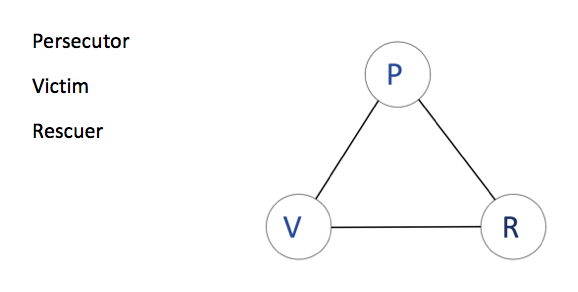Game Players
Episode #8 of the course Handling difficult people by Chris Croft
Welcome back!
Now we are going to look at the most annoying people of all, the ones who play “psychological games.” What are they doing and what can be done?
These are people who have got into the habit of behaving badly to others because it makes them feel good. In this lesson, we will look at the structure that underlies all games, some examples, and what can be done about them.
Common Games
Here are common games Game Players usually use.
• “Only trying to help you”
This game consists of a person criticizing you or your decisions (“I wouldn’t do it like that,” “You shouldn’t have bought that one,” “Can I offer you a bit of advice?”). Like all games, this is being played on the Drama Triangle:

The player is pretending to be a Rescuer, but of course, they are really Persecuting you. If you point this out, they will retreat to Victim and say, “I was only trying to help!”
• “Yes But”
This game begins with the player asking you for help, something like, “What do you think I should do about this problem?” Each of your suggestions is rejected with, “Yes, but …”, “I’ve tried that,” or, “That won’t work because …” Eventually, you fail to rescue them and they then say, “You’re no use—I don’t know why I bothered to ask you.” You are now the victim and they have become the persecutor.
• “Kick Me”
These people start with, “Look what I’ve done now! I’m so hopeless” (victim), inviting you to be a rescuer and say, “That’s okay, it doesn’t matter, you’re fine” (gives them a good feeling). They can keep doing whatever it is, maybe getting worse and worse, until you have to say, “Yes, you are hopeless,” so they can say, “There’s no need to be like that, I’m doing the best I can, you know!” You are now the persecutor (how did that happen?).
Almost everything that’s annoying is on the Drama Triangle!
If a behavior pattern is very annoying, has a twist at the end, and leaves you feeling angry but also confused, it’s probably a game. Why do people do it when it just annoys everyone else? Because they get a payoff, and they are controlling the situation, treading well-worn safe paths that make them feel good. Do they know they’re doing it? Often, they don’t—it’s become a subconscious habit.
Four Ways to Deal with Games
But what can you do when someone is playing psychological games? Here are simple tactics that may help you:
Withdraw. Avoid the person, or at least walk away from the game situation when it arises. This can be difficult at work, but certainly in one’s personal life, it’s a good option.
Live with it comfortably. Once you know what their game is, you can just ignore it, perhaps even feel sorry for them, or at least be amused by them.
Be assertive. Confront the game player about their behavior, just as a one-off: “I don’t like it when you complain about the boss all the time—it depresses me,” “I thought you were out of bounds criticizing Louise behind her back just then.” If they respond with, “I was only joking,” you can say, “Well, I didn’t like it.”
Expose the game. If they keep doing it, then you are justified in pointing out the game: “Have you noticed how you tend to suggest things I should have done when it’s already too late?” They will almost certainly deny it with, “I do not!”, so you can be ready with, “Okay then, shall I point it out next time you do it?” This is quite a heavy thing to do—to tell them that they are annoying in most of their dealings with people. But then, maybe you are doing them a favor by telling them that?
Homework: What people do you know are game players? Plan which of the above four methods you’re going to use on them next time they play their game with you.
See you tomorrow for the last lesson about leaving the past behind.
Chris
Recommended book
Share with friends

